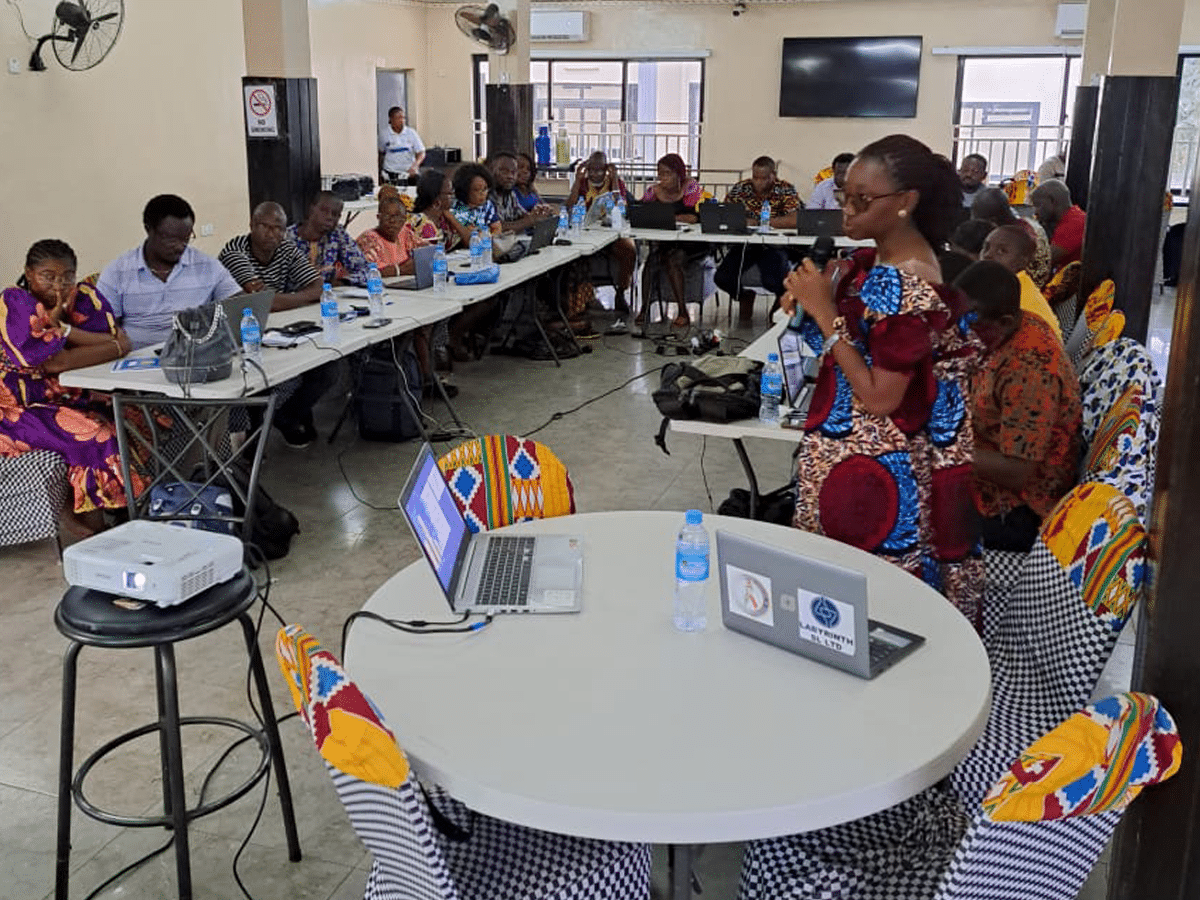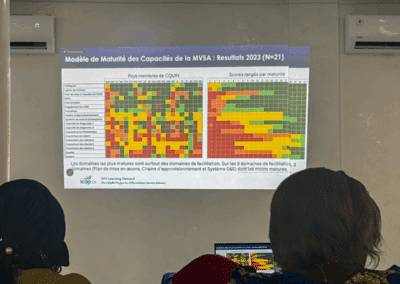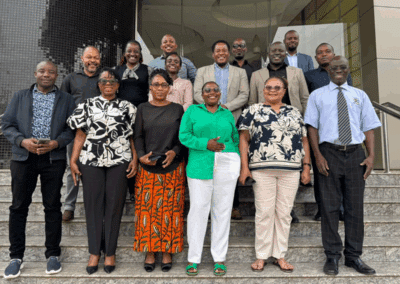To improve service delivery for recipients of care and ease the burden of congestion at health facilities, Sierra Leone’s National AIDS Control Program (NACP) is taking an active approach to implementing differentiated service delivery (DSD) by prioritizing the training of health care professionals to rapidly scale up DSD.
In 2022, ICAP’s CQUIN team supported NACP to develop a DSD operational manual to guide DSD implementation. Building on this milestone, NACP designed a training-of-trainers course for 22 master trainers from 14 districts to further catalyze scale-up of DSD in Sierra Leone. The course was supported by the U.S. President’s Emergency Plan for AIDS Relief (PEPFAR) through Jhpiego, WHO, and UNAIDS, as well as technical assistance from Martin Msukwa, MPH, BSN, CQUIN regional clinical advisor and liaison to Sierra Leone.
From May 22 to May 26, 2023, master trainers were oriented to key topics on DSD, including an introduction and overview of DSD, differentiated HIV testing, differentiated HIV treatment models planned for Sierra Leone, and DSD for key populations, among other topics. These trainers, in turn, will build the capacity of 625 health facility staff implementing DSD rollout and lead an assessment of community and facility readiness. Additional trainings are planned, with a target of 56 master trainers by mid-June 2023.
“Ensuring that DSD implementation is fast-tracked for Sierra Leone is important,” said Alren Vandy, MD, MPH, technical officer responsible for Sexual and Reproductive Health with the WHO in Sierra Leone. “The implementation starts with training of trainers, who will cascade the training to service providers and ensure DSD is implemented in all districts to improve people-centered service delivery for people living with HIV in Sierra Leone. In addition, WHO plans to provide technical and financial support for DSD guidelines development, capacity building of service providers, and support for coordination and partnership for DSD implementation and scale up.”
“Sierra Leone is progressing towards the implementation and rollout of differentiated service delivery models,” said Ginika Egesimba, MBBS, MSc, DSD advisor for NACP in Sierra Leone. “The key policy documents that set the roadmap for DSD have been completed with support from CQUIN, PEPFAR-Jhpiego, WHO, UNAIDS, and our implementing partners. In addition, we are currently printing the revised national tool for program management and patient monitoring, which has been one of the limiting steps to DSD rollout.”
According to Dr. Egesimba, since joining the CQUIN network in 2019, Sierra Leone has established an active DSD technical working group to coordinate DSD activities in the country. The technical working group reviews treatment policy guidelines to enhance differentiated ART and HIV testing services. “Consultative meetings have been held with various implementing partners to budget and support the rollout of DSD initiatives,” said Dr. Egesimba.
“ICAP/CQUIN will continue to provide technical assistance to Sierra Leone for DSD rollout and implementation through CQUIN,” said Mr. Msukwa, who helped with planning and facilitating the training. “CQUIN will support Sierra Leone to visit Uganda this June to learn more about DSD implementation as part of our capacity-building strategies,” he said.






